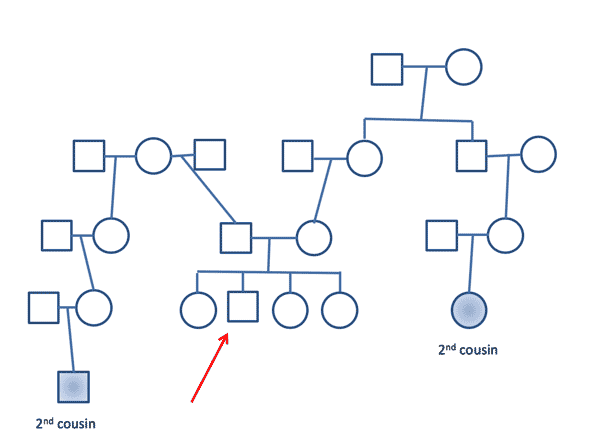Using genetic ancestry sites for criminal investigations

Jalayne Arias opened our discussion with an overview of recent media coverage of the use of non-forensic ancestry databases in criminal investigations, most notably in the case of the Golden State Killer. Joanne Taylor then provided a brief summary of how these investigations utilize unique genetic information (in the form ofsingle nucleotide polymorphisms and short tandem repeats), along with pedigrees, analyses of social media, and more traditional forensic science to identify suspects; as in a recent case in Seattle (depicted).
Jen Yokoyama gave more scientific background about how testing is performed, and then Jamie Fong discussed current practices for obtaining consent from research participants at UCSF for genetic testing. We had a wide-ranging discussion, including about what degree of protection for the confidentiality of research participants’ genetic data is provided by NIH Certificates of Confidentiality, how use of non-forensic genetic databases may actually mitigate racial and ethnic inequities that can arise from reliance on prevailing forensic genetic databases, and the potential application of these techniques to probate proceedings to identify unnamed heirs.
 Decision Lab
Decision Lab